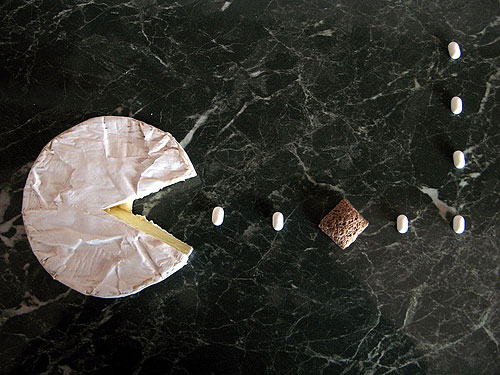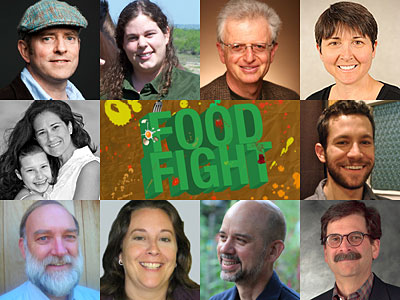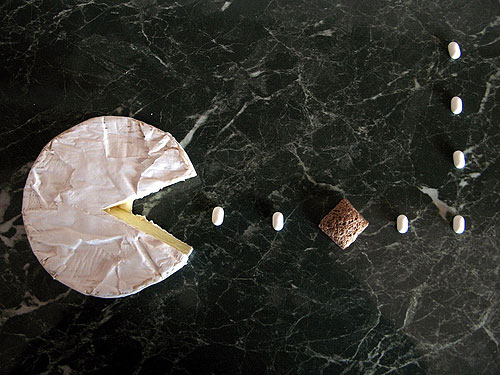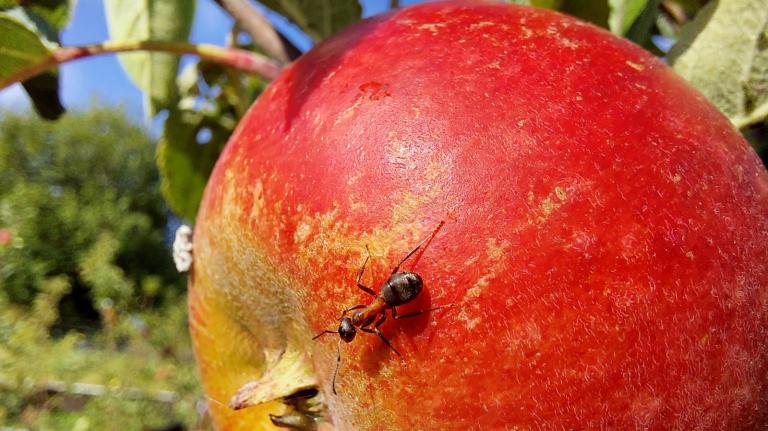 Photo: fuxoftThe government going after raw milk was something a lot of people could comfortably ignore — fringe-y kooks making a lot of noise about milk that could be dangerous.
Photo: fuxoftThe government going after raw milk was something a lot of people could comfortably ignore — fringe-y kooks making a lot of noise about milk that could be dangerous.
But start messing with people’s $22-per-pound raw-milk Camembert … well, now you’re dealing with serious food for more mainstream foodies.
Yet that’s what may be happening. The five-year-old war on raw milk appears to be expanding to include a war on raw cheese.
The American Cheese Society, with more than 1,200 members, mostly from the specialty cheese world, is warning its cheese producers to be on guard for a crackdown by the U.S. Food and Drug Administration.
“In recent weeks the FDA has stepped up audit activity and inspections at creameries around the country,” the organization’s president, Christine Hyatt, wrote in a letter to members last week. She advised them to “be prepared for visits from inspectors, and follow careful internal systems to ensure the quality and safety of your products.”
She noted that the organization is currently surveying members to determine exactly how widespread the FDA visits are. But she noted that at its annual meeting last August, “the topic of regulatory activity was front and center.”
Since 1949, American dairy regulations have allowed the sale of cheese made from unpasteurized milk as long as it’s aged at least 60 days, with little or no problem from illnesses. The idea behind the 60-day rule is that any pathogens that might be present die off before 60 days.
Now, the FDA seems to be having second thoughts about the 60-day rule. Last February, a high-ranking official was quoted as questioning the 60-day aging period as possibly less effective than the agency wanted in countering pathogens. And a regional cheese website quotes an FDA spokesperson as saying the agency is “reconsidering the rule because we’ve discovered that pathogens are capable of surviving beyond 60 days.”
Suddenly, in the last few months, the FDA has been involved in effectively shutting down two artisanal raw-dairy producers — Morningland Dairy in Missouri and Estrella Creamery in Washington — for the presence of listeria in their cheese. The shutdowns are highly unusual for the agency when there have been no illnesses reported; it’s reluctant to shut down Big Ag producers even after people get sick.
Meanwhile, a third producer, Bravo Farms Cheese in California, has been cited as a likely source in an outbreak from cheese purchased at Costco that has sickened possibly 25 people with E.coli 0157:H7.
Might the crackdown on artisanal cheesemakers have anything to do with the federal government’s expensive efforts to help corporate cheese makers sell more of their product to fast-food purveyors, as reported in Sunday’s New York Times? Big Dairy — including big processors of both milk and cheese — has been active in supporting the FDA’s fight against raw milk. Wisconsin’s governor, Jim Doyle, last April said it was Big Dairy that helped convince him to veto legislation that would have made raw milk legal when purchased from Grade A dairies. So the notion of big dairy processors and cheese makers like Horizon and Dean Foods fighting against fast-growing artisanal cheese isn’t as outlandish as it might at first sound.
A war on raw cheese would likely stir up a much bigger firestorm than the ongoing FDA assault against raw milk producers, which started in 2006 with several “sting” operations against dairy farmers in Ohio and Michigan. The effort spread to include California, New York, Pennsylvania, Connecticut, Georgia and, most recently, Wisconsin and Massachusetts. A number of court cases are pending, including a major case filed by the Farm-to-Consumer Legal Defense Fund challenging the FDA’s regulations prohibiting interstate shipments of raw milk; a federal judge earlier this year refused an FDA request to dismiss the case.
The FDA’s challenge is that very likely many more people fancy raw cheese than raw milk. The raw milk market is estimated to include perhaps 1 or 2 million consumers, who tend to be considered fringe foodies by the public health community.
But raw cheese has become an ever more popular delicacy among even mainstream foodies, and artisanal producers have sprung up in many states, with Vermont and California considered to be centers of production, using not just cow’s milk but sheep and goat milk as well.
The FDA has never been known to take such niceties as consumer taste and nutritional preferences into account in its approaches to such matters, though.
Right now, it seems clear the FDA is amassing “evidence” for the case it will be making in coming months that the 60-day rule on raw cheese is insufficient, and we’d be better off without any raw milk cheeses of any sort. Try spreading that on your French bread.



